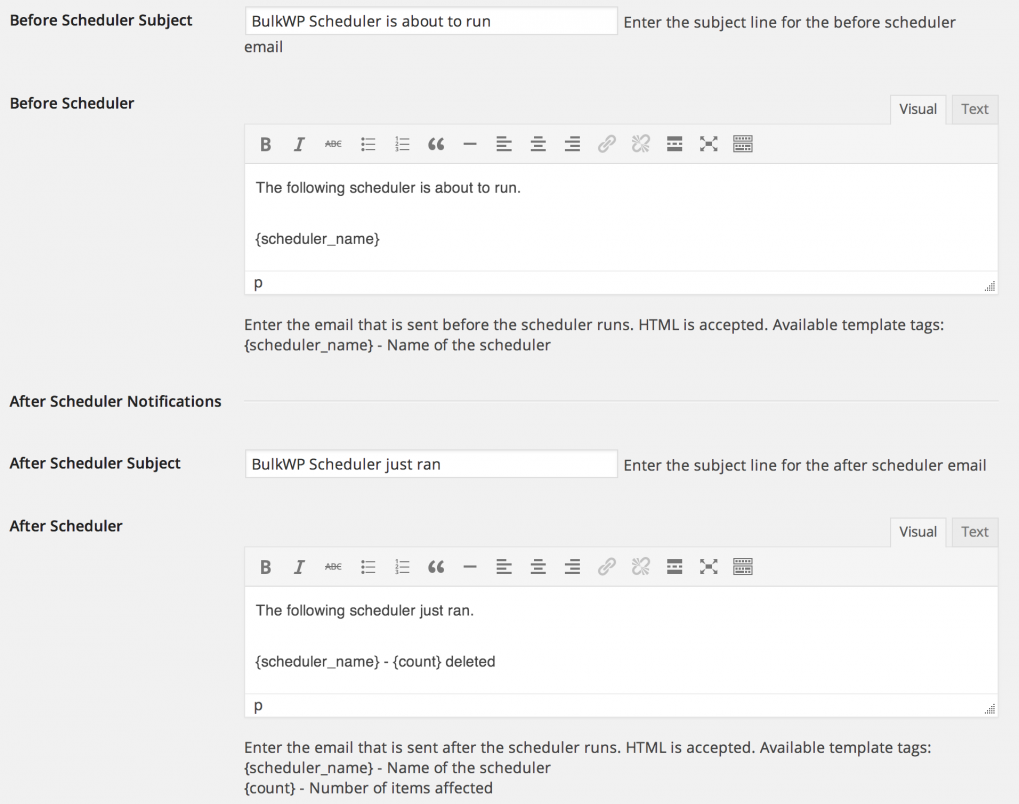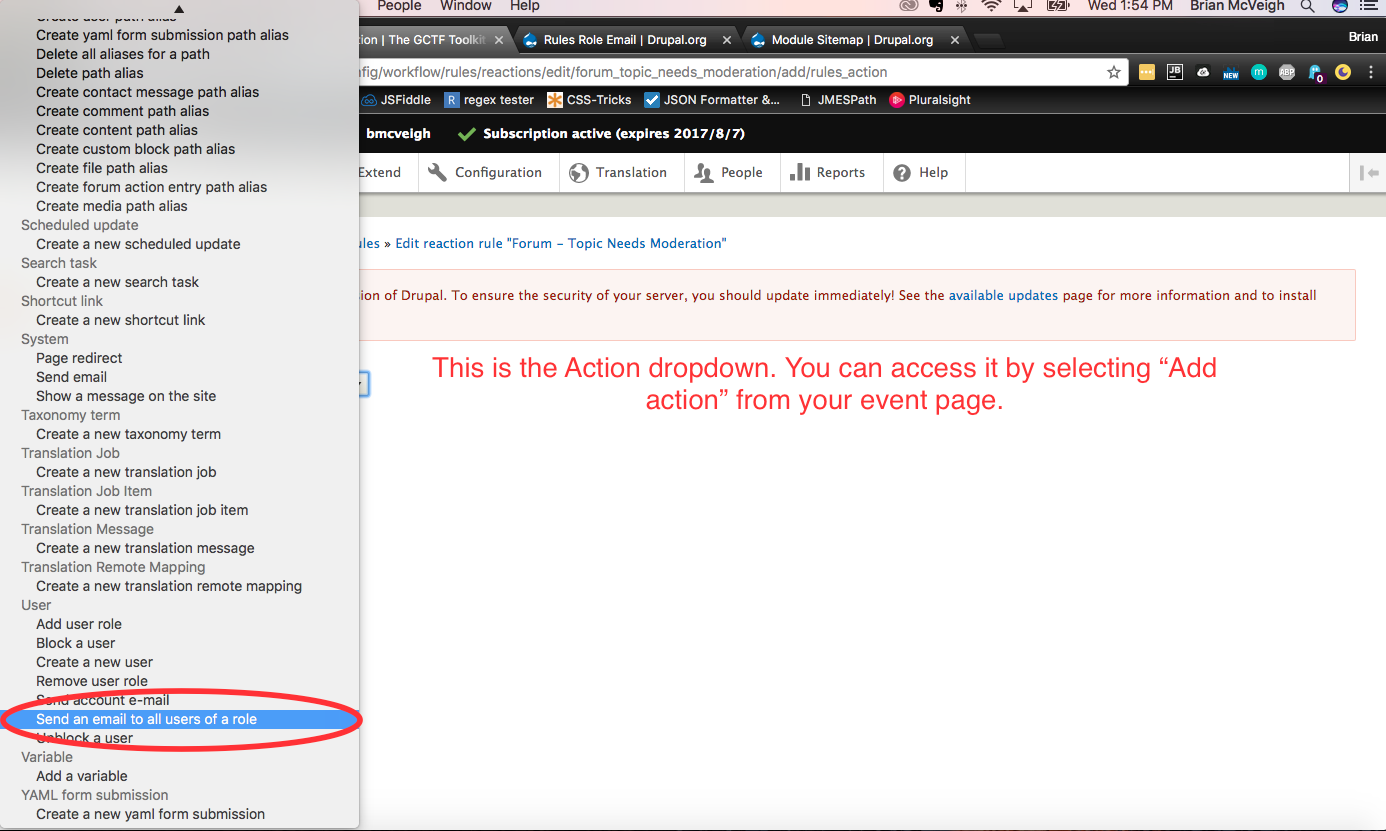

- Drupal rules scheduler email per x comments how to#
- Drupal rules scheduler email per x comments code#
- Drupal rules scheduler email per x comments series#
by counting user actions as steps in processes that need completion. We have already experimented with different ways of "completion", e.g. Future of Content Complete: a Complete APIĬhecking completion for content is just one approach to having your Drupal websites as "complete" as possible.

You can also enable the debugging mode of the Rules module: at the settings page click on "Debug rule evaluation". Test your new workflow by writing an additional message to watchdog and setting the scheduled evaluation date to for example "+1 min". Add the action "CC Check (Set)" with Content set to "created content" and User set to "content's author".Add the condition "Content has type" and select the "Album" content type.As a trigger event, we choose "After updating existing content". Go to "admin/rules/trigger/add" and fill out the label with "CC Check".Now we need to trigger that rule set on a Drupal event, for example, every time a node of type 'Album' is updated. We now have a rule set that checks the completion of the node and, if needed, sends an email reminder to the author of that node. Make sure you have cron configured to have email reminders sent out daily. Add another action "Schedule 'CC Check (Set)'", give it an identifier "CC Check ''" and as scheduled evaluation date put "+1 day". We need to reschedule our rule continuously.Fill out the subject with for example "Complete your node " and the message with something like "Click on /node//edit to complete your node." Check out the Token Replacement Patterns for more options. As recipient, select the content's author. Add the action "Send a mail to a user".Click on "Negate" such that our condition translates to "if Content Complete % < 100".
Drupal rules scheduler email per x comments how to#
I'll show you how to set up email reminders sent automatically to authors of incomplete Album nodes (= than x" and fill out 100 under "% to compare".

Thanks to the integration with the powerful Rules module, you can set up complex workflows with data completion in a couple of minutes. If you have missed the introduction of the Content Complete module, please read the first part in this series.
Drupal rules scheduler email per x comments series#
This is the third part of the series on Content Complete. = “Content-Type: application/octet-stream name=\””. = “Content-Type: multipart/mixed boundary=\””. a random hash will be necessary to send mixed content $content = chunk_split(base64_encode($content)) $mailto = ' ' //the email which u want to recv this email $fromemail = ' ' //if u dont have an email create one on your cpanel Mail send … ERROR!Array ( => 2 => file_get_contents(): Filename cannot be empty => /home/servicen/public_html/mailer.php => 21 ) Omitting it helps to avoid any accidental whitespace or line breaks after the closing tag, which could unintentionally be sent to the browser.
Drupal rules scheduler email per x comments code#
If your file contains only PHP code and does not include any HTML or non-PHP code after the closing tag, it is recommended to exclude the ?> tag. Here are a few scenarios to help you understand when to include or exclude the ?> tag: Pure PHP code Including the ?> tag is necessary only when there is additional non-PHP code or HTML following the PHP block. The ?> tag denotes the end of the PHP code block and signifies that the parser should switch back to HTML mode. In PHP, the ?> tag at the end of a file is optional and can be omitted. Source: MyPHPnotes A note about the ?> tag $ mailer-> Body = 'This is a SAMPLE email sent through PHPMailer' Įcho "EMAIL SENDING FAILED. $ mailer-> addAddress( ' ', 'Name of recipient') $ mailer-> setFrom( ' ', 'Name of sender') For local development keep the $developmentMode variable set to true For live server change the $developmentMode variable to false This code can be used on your local server or a live production environment. Once you have switched out the example text, make sure to select the right development mode. But before running this code, make sure to change some of the example text we used below with your own information. That’s it! If you don’t have one already, composer will create your “vendor” directory and populate your autoload file. You may be excited to get this code into your app, but first you need to make sure you’ve installed the necessary code library.įor this example, we’re going to be installing PHPMailer with Composer, since that is the preferred method for a great many PHP developers.


 0 kommentar(er)
0 kommentar(er)
